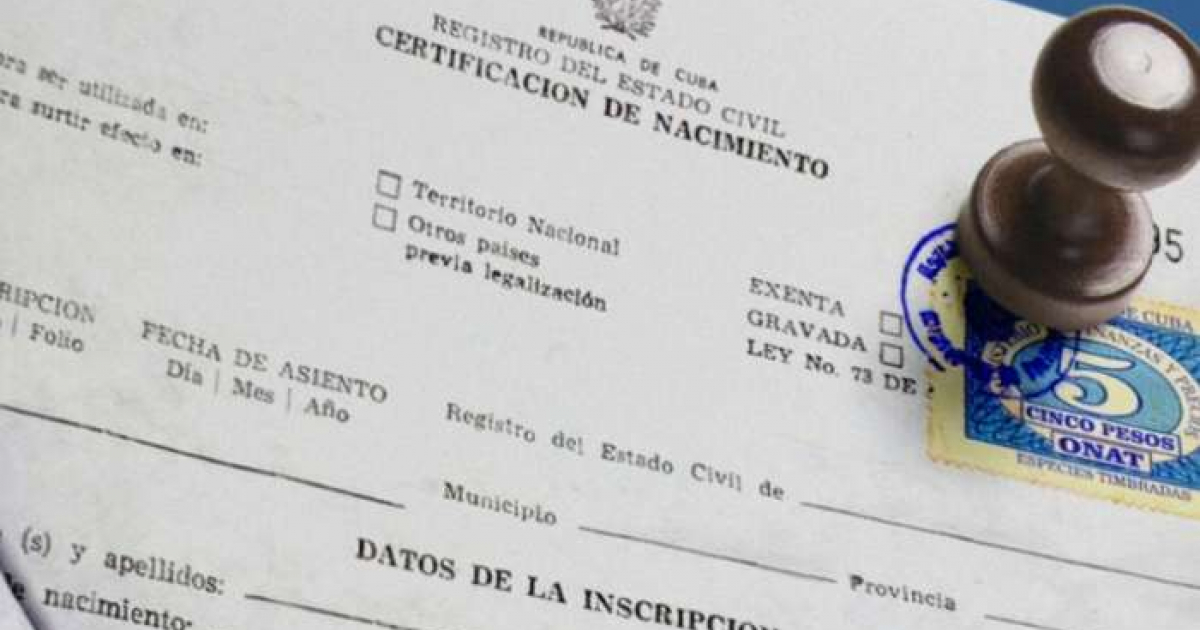
The increase in document legalization procedures by Cubans before the Ministry of Foreign Affairs (MINREX) has led the Cuban government to study the possibility of joining the Apostille Convention, According to the head of that portfolio, Bruno Rodriguez Grill.
In a Round table, in which the minister referred to the projections of Cuban foreign policy, an important point was the situation with the legalization of documents, a procedure that is demanded by the population and receives a lot of criticism due to the slowness of the process.
“There is a group of Ministry workers who work hard. There has been a modernization of those processes. And more fundamental solutions are also underway,” Rodríguez Parrilla said in the television program, and pointed out three solutions that could be found so that this issue of legalizations is not so exhausting.
He indicated that the first would be that "barriers not be put up by developed countries," who, among their requests, sometimes demand that legalizations not be older than six months.
Another possible solution is for Cuba to adhere to the Apostille Convention, an international convention that allows up to 60% of the documents not to have to be legalized through a procedure for them to have legal effect outside the island. But that option only remains under study by the Cuban authorities.
However, he described a third way that aims “integrate and facilitate this entire long process that comes from the registry entities, the consultancies, and the legalization unit of the Minrex”. Apparently, this is the closest to being realized in the near future.
According to Rodríguez Parrilla, There are 65 young people from the Military Service incorporated into MINREX supporting the process of legalizing documents, which for the Minister do not reflect migratory flows but rather circularity, a term that he defined as “the universal tendency to reside abroad for a period of time.”
Since the middle of last year, MINREX recognized a delay in the legalization of documents due to the increase in demand for that service.
The huge migratory exodus has caused the collapse of notary offices in several provinces given the increase in procedures such as powers, authorizations and sales amid the government's inability to effectively carry out the processes.
This fact, which exceeds the processing capacity of the regime's officials, coincides with the possibility of obtaining Spanish nationality through the Democratic Memory Law, approved by the Spanish Congress and Senate and effective since October 2022, by which some five million Cubans could naturalize and settle in any country of the European Union.
The increase in procedures has now been accelerated and has occurred in a context where the offices in charge do not have enough computers or printers to process the documentation.
Ernesto Soberon, general director of Consular Affairs and Cubans Living Abroad (DACCRE), explained that compared to the previous year, the increase in demand is 16%.
In the midst of severe criticism for the delay and suspension of these procedures, which have even found a reason to shield themselves in the serious energy situation, the ministry itself announced the inauguration of a new area and the increase in the number of workers.
According to a tweet by Ernesto Soberón, published in May 2023, the increase in personnel leads to a growth in the legalization capacity of the government entity.
Throughout the country, the enormous concentration of Cubans waiting to access a turn to request their official documentation that allows them to leave the country, while government branches continue to justify their inefficiency with the flood of requests.
What do you think?
SEE COMMENTS (3)Filed in: